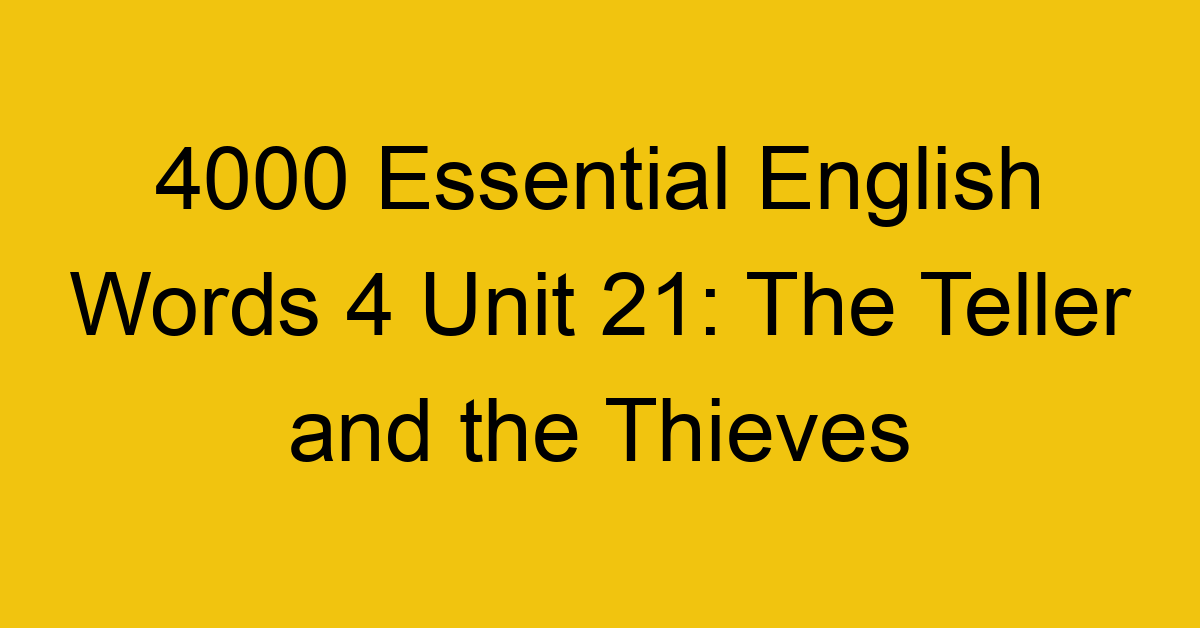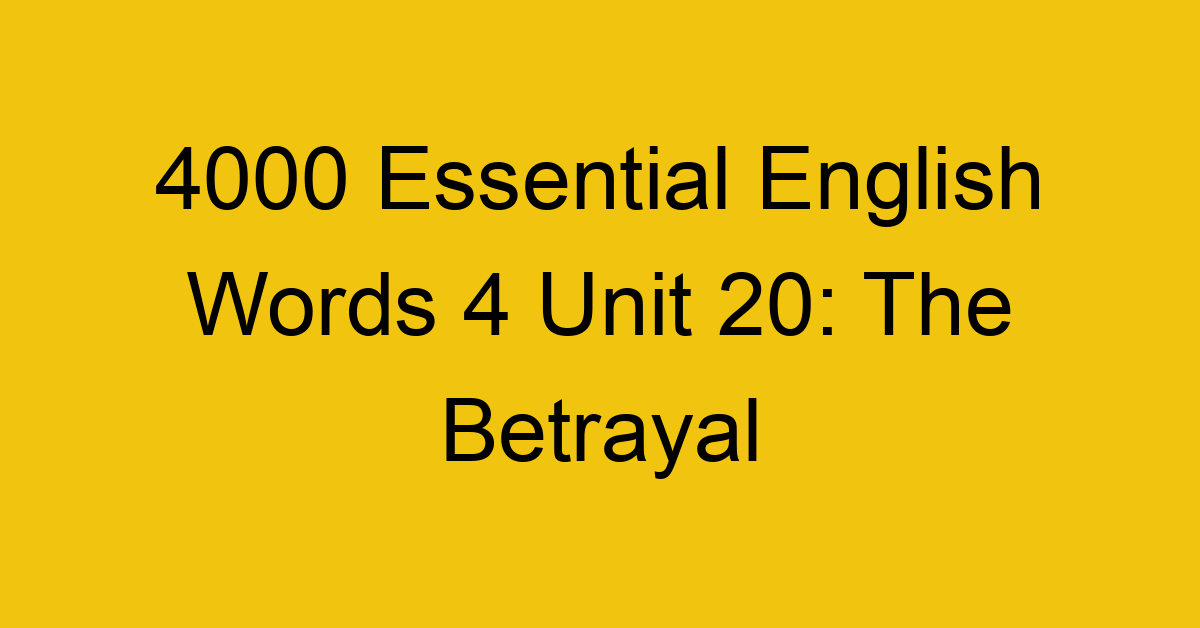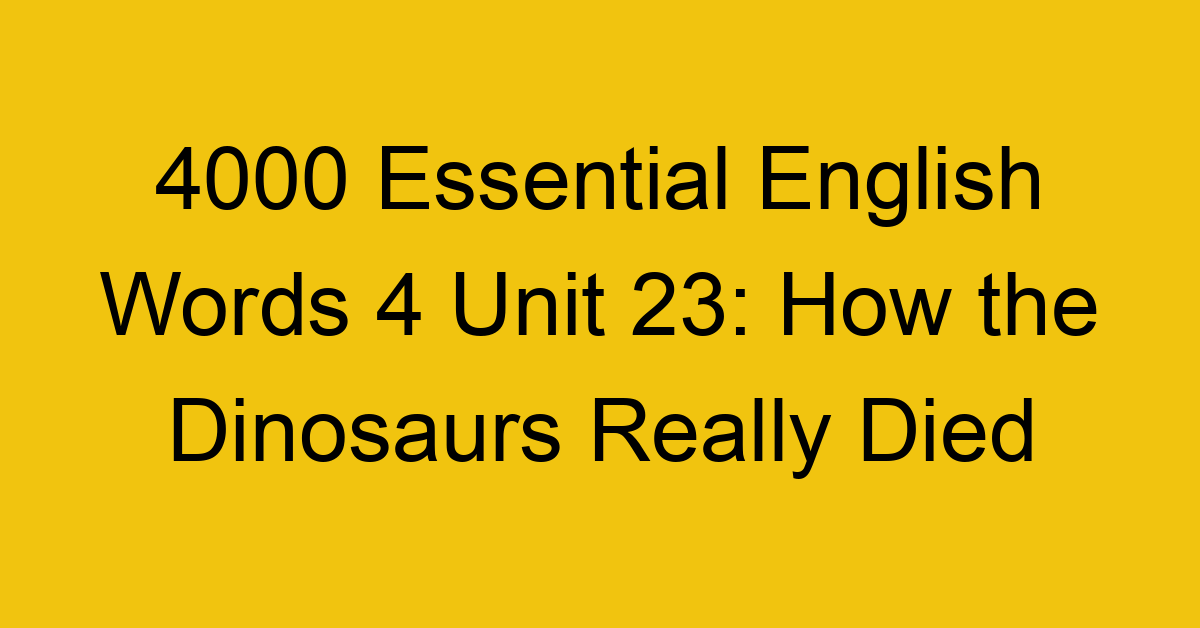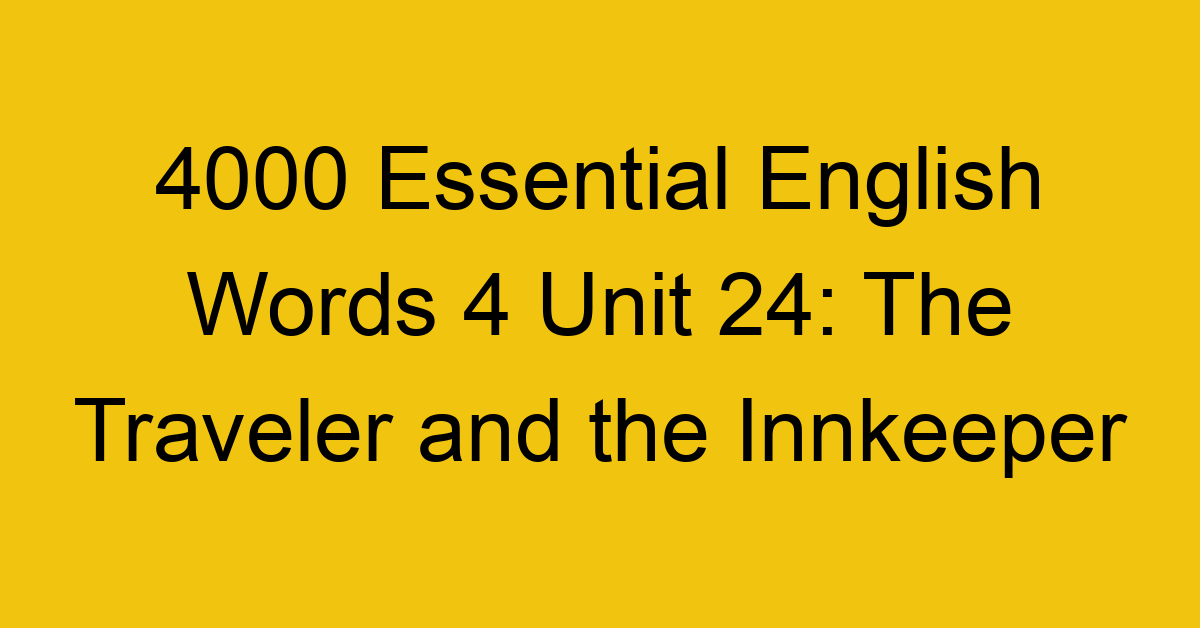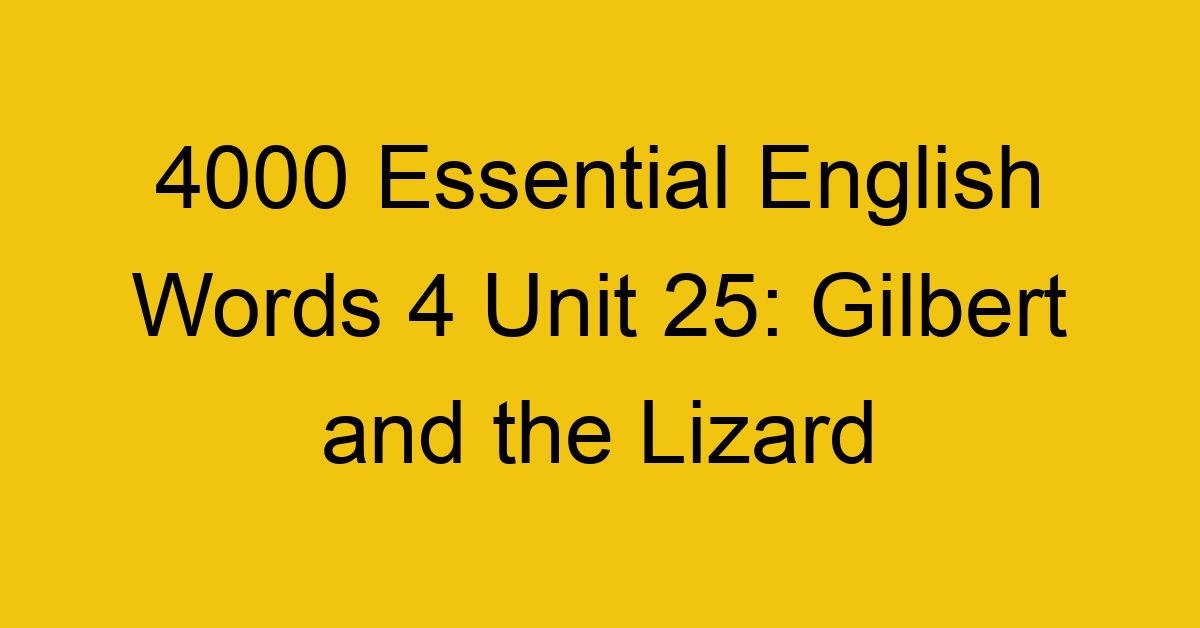4000 Essential English Words 4 Unit 22: The Scribe’s Warning
Word List
- charity [ˈtʃӕrəti] n.
Charity is an act of giving help, usually money, to those who need it.
→ Thanks to his friends’ charity, he had enough money to pay the rent.
- commerce [ˈkɒmərs] n.
Commerce is the activity of buying and selling things.
→ The new shopping mall increased the commerce in that section of town.
- condemn [kənˈdem] v.
To condemn someone means to give them a specific punishment.
→ The judge condemned the criminal to five years in prison.
- cozy [ˈkouzi] adj.
If something is cozy, then it is comfortable, warm, and relaxing.
→ The thick blanket made the bed very cozy.
- deplete [diˈpliːt] v.
To deplete an amount of something means to use up all of it.
→ All the driving he was doing was depleting his car’s fuel supply.
- economy [iˈkɒnəmi] n.
An economy is the money and businesses of a country or region.
→ The factory was good for the economy because it brought jobs to the area.
- empire [ˈempaɪər] n.
An empire is a large group of countries ruled by an emperor or empress.
→ The emperor built roads to make travel easier throughout the empire.
- goods [gudz] n.
Goods are anything that can be bought or sold.
→ Shoes, hats, dresses and purses were the goods she wanted to buy.
- heed [hiːd] v.
To heed something means to obey or follow it.
→ You should heed the advice on the sign and not drive so fast.
- hitchhike [ˈhitʃhaik] v.
To hitchhike means to travel by asking for rides from passing vehicles.
→ She didn’t have a car, so she hitchhiked several miles to her brother’s home.
- mock [mɒk] v.
To mock someone means to tease them in a cruel way.
→ The girls mocked Nancy because she was a new student.
- neutral [ˈnjuːtrəl] adj.
If someone is neutral, then they do not help either of the two fighting sides.
→ The girl’s friend remained neutral while the couple was arguing.
- persecute [ˈpəːrsikjuːt] v.
To persecute means to treat someone badly.
→ Dan felt persecuted because he was smaller than the other boys at school.
- pity [ˈpiti] n.
Pity is the feeling of sadness and kindness for those who are suffering.
→ Because she had pity for the lost boy, she helped him find his parents.
- reduce [riˈdjuːs] v.
To reduce something means to make it less in size or number.
→ When the store reduced its prices, people wanted to shop there.
- scribe [skraib] n.
A scribe was a person whose job was to copy written works.
→ In Ancient Egypt, scribes recorded important events.
- temper [ˈtempə:r] n.
A temper is someone’s mood or a chance that they might get angry.
→ She has a temper. Even the slightest mistakes make her angry.
- throne [θroun] n.
A throne is the special chair in which a ruler sits.
→ Nobody except the king and queen sat in the thrones in the great hall.
- unity [ˈjuːnəti] n.
Unity is the state of people working together for a certain purpose.
→ The project was finished early, thanks to the unity of the workers.
- victor [ˈviktər] n.
A victor is a group or person that wins in a contest.
→ At the end of the game, the blue team was the victor.

